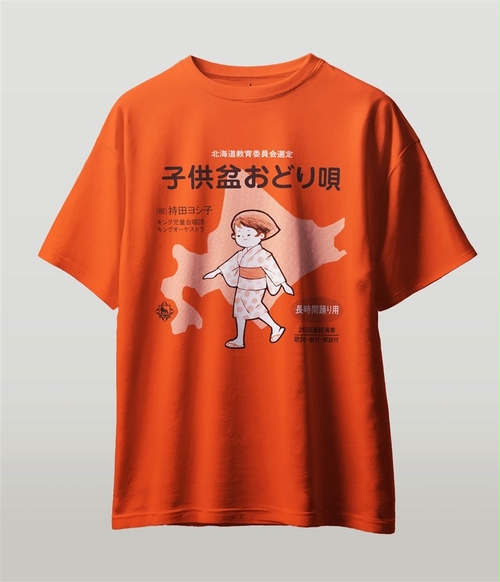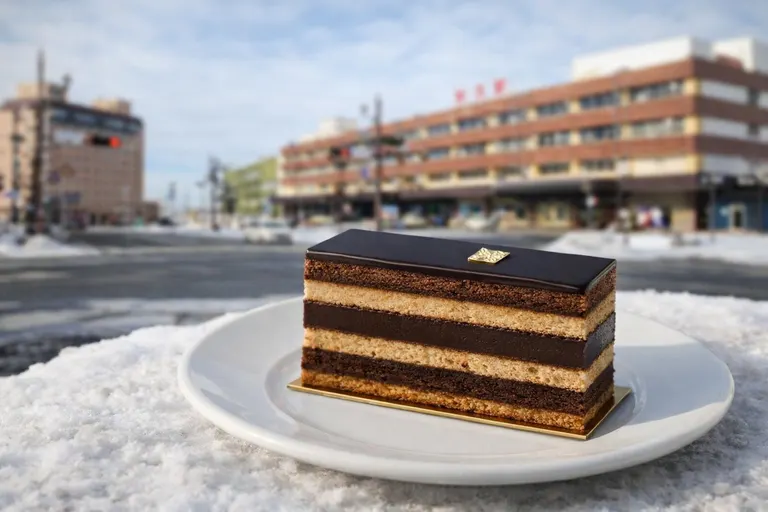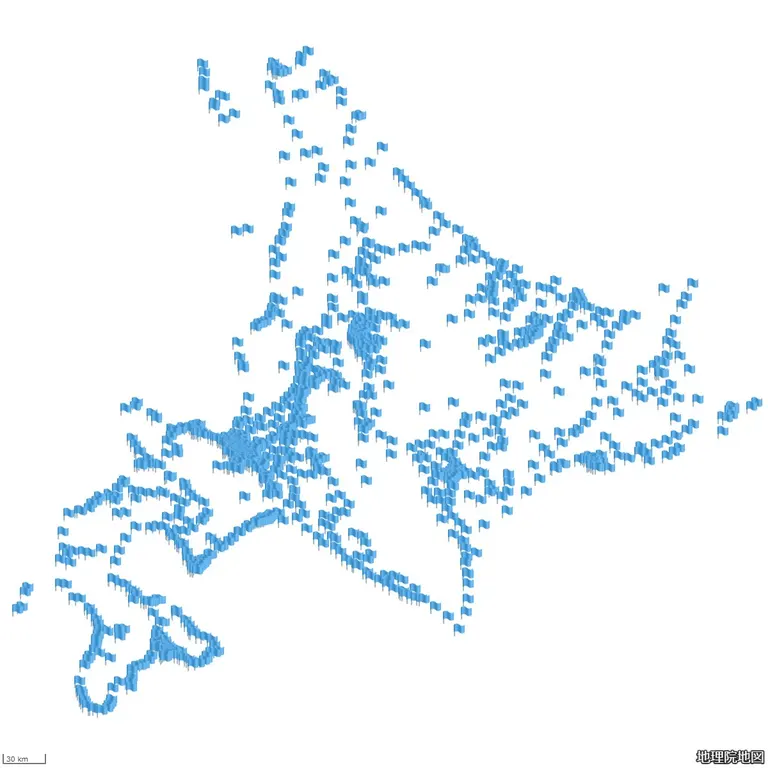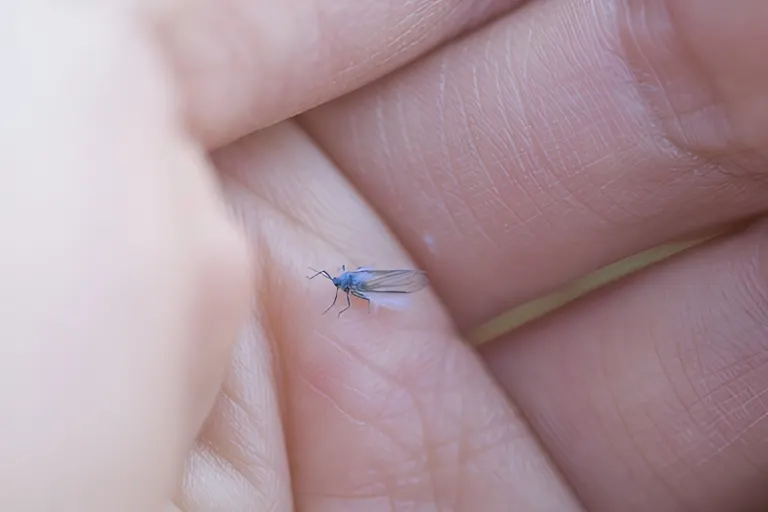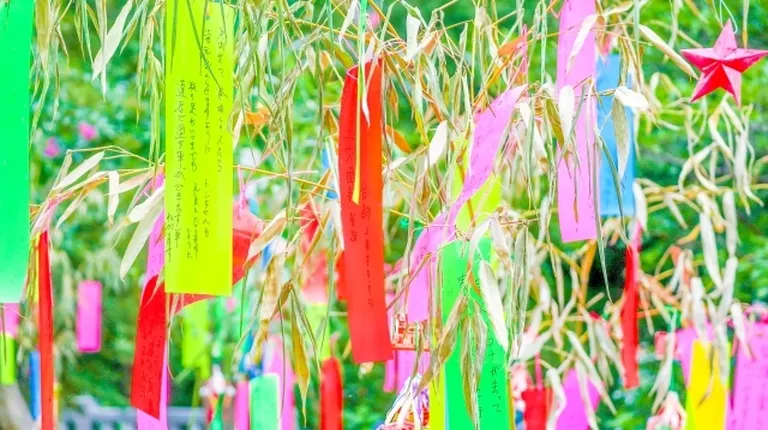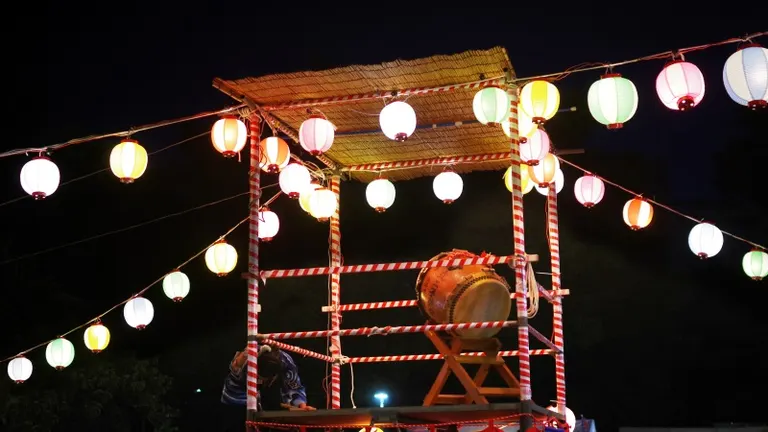
ARTICLES
Chanko? Shanko? The Secret Behind Hokkaido's Famous Children's Bon Dance Song
The Official Lyrics of the Children's Bon Odori Song are Correctly "Shanko"
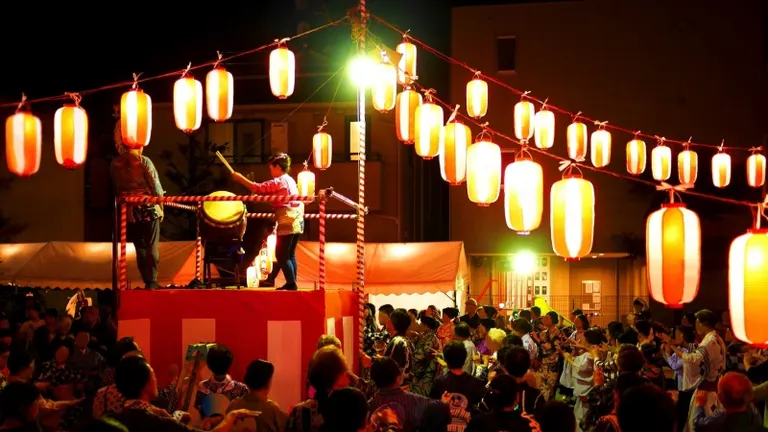
The "shanko" in the lyrics is said to represent the "shan shan" jingle of bells on a horse, but many people surely thought it was "chanko." While the similar pronunciation is one reason for the mix-up, there's actually another story behind it.
The song was first released in 1952 (Showa 27). Then, in 1995 (Heisei 7), a new recording by the Tanpopo Children's Choir, different from the original, was produced. By this point, the original recording had been in use for over 40 years, so it's not surprising that there was talk of creating a new one.
However, this new version changed the "shanko" in the lyrics to "chanko" without the original author's permission, and the song was expanded from three verses to a whopping eight.
Naturally, this led to copyright issues, and the version was eventually discontinued in 2002 (Heisei 14). Nevertheless, it was likely used at many venues for about seven years, during which time the "chanko" version probably became somewhat established.
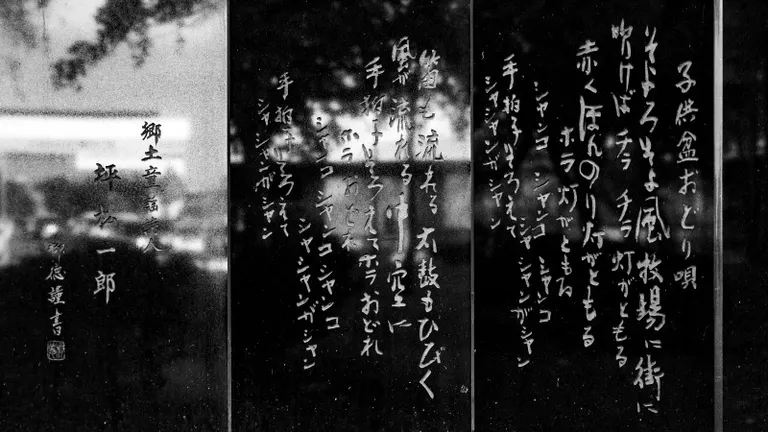
The official lyrics carved into the song monument
Despite that incident, most venues today still use the original recorded version. It's quite remarkable that a sound created over 70 years ago is still being played in its original form.
Incidentally, until a few years ago, it was possible to buy the cassette tape on Amazon, but as of this writing (June 2023), it was out of stock.
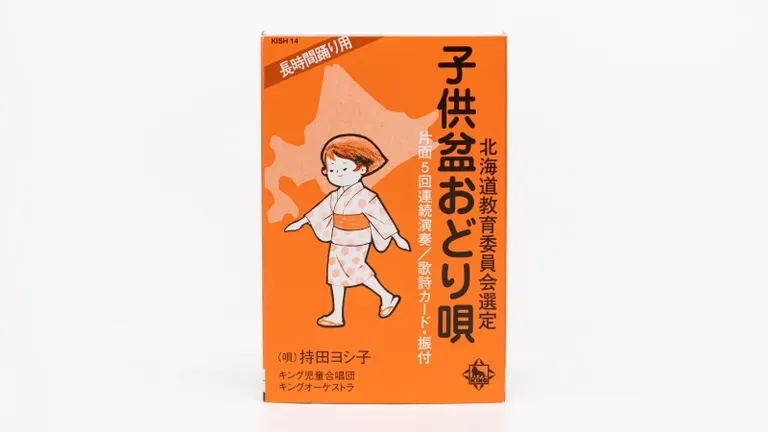
The cassette tape of the Children's Bon Odori Song
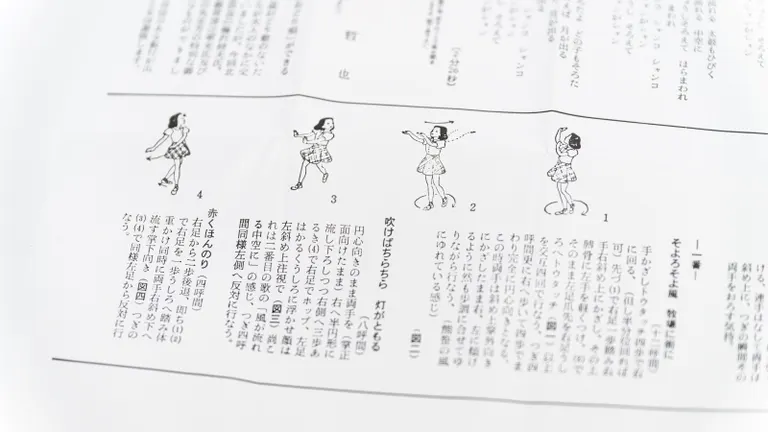
The paper insert in the tape explains the choreography
And surprisingly, this tape has never been released on CD. The version included on the following CD is said to be the only CD recording available today.
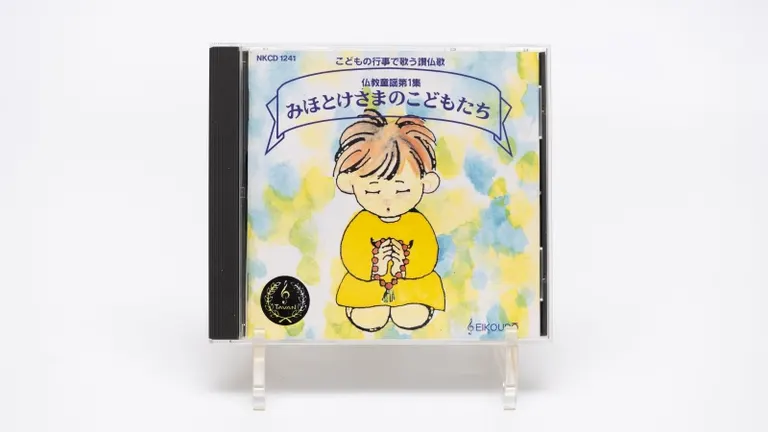
[Buddhist Hymns] Buddhist Children's Songs: Mihotoke-sama no Kodomotachi ~Hanamatsuri Marching Song Included (CD)
- 1
- 2






